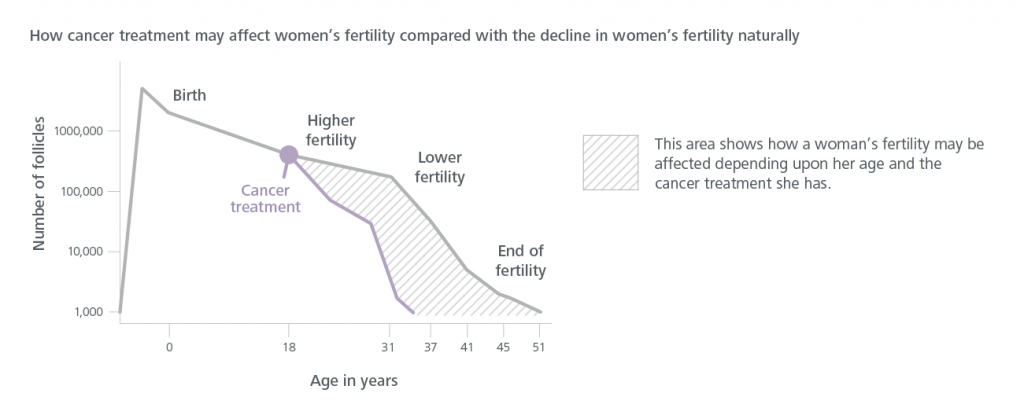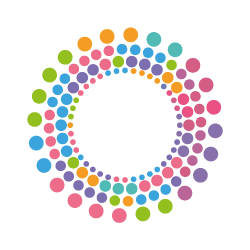Introduction
This section tells you more about how cancer treatments can affect your fertility.
There are many factors that can influence whether or not a young woman gets a fertility problem after having cancer treatment. These factors include the young woman’s age, her fertility and health before she had cancer, the type of cancer she has and the type of cancer treatment she has.
It is hard to know how a young woman’s fertility will be affected because there are lots of different things that can influence fertility. However, not all young women that have cancer treatment will have a fertility problem in the future. Often, it is only after the cancer treatment has stopped that we can try to work out if a young woman’s fertility has been affected.
To discuss more about your chance of having fertility problems in the future, you may want to talk to your cancer care team and fertility care team before you start your cancer treatment. These teams could help work out how your choice of cancer treatment may impact on your fertility.
The graph below shows how cancer treatment may affect a young woman’s fertility. In particular, the graph shows that a young woman may have less eggs in her ovaries after cancer treatment. The grey shaded area on the graph shows that a young woman’s fertility may be affected differently depending on her age and the cancer treatment she had.
Your level of fertility may fall somewhere in the shaded area below. Your cancer care and fertility care teams may be able to help you work out how your fertility could be affected.

Graph 1: How cancer treatment may affect women’s fertility compared with the decline in women’s fertility naturally

